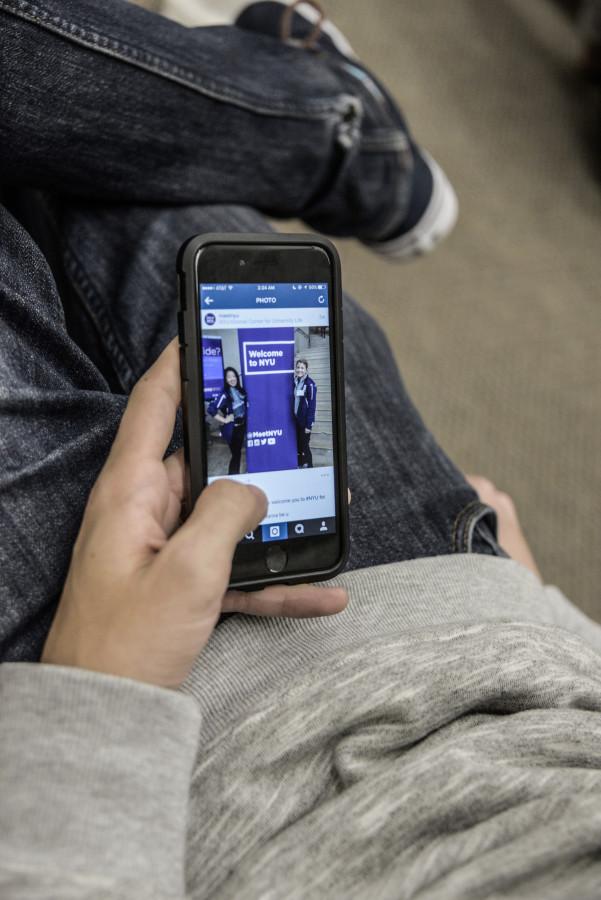The university has received approximately $12 million in funding to establish a new Center for Social Media and Politics, which will research topics like how social media affects political participation and the spread of disinformation.
The impact of social media on politics has seen increased attention since the 2016 presidential election, which was marred by controversies surrounding fake news and coordinated disinformation campaigns by Russia. Criticism of social media arose when the consulting firm Cambridge Analytica was found to have improperly used the personal data of millions of Facebook users to employ tailored political advertisements.
The center is an extension of the Social Media and Political Participation research lab, which has done research on topics such as disinformation since 2012, finding that those over the age of 65 were disproportionately likely to share fake news on Facebook. They’ve also found that Russian trolls from the Internet Research Agency shared more links to local news — sometimes posing as news organizations — than fake news.
Co-director of the center and Professor of Politics Jonathan Nagler said that the center’s goal is to inform the general public, and policymakers in particular, about the role social media plays in swaying voters.
“We really want to know: what are people doing on social media?” Nagler said. “We want to know what’s the impact of that on their political views, their political attitudes and their political behavior.”
Politics professor Joshua Tucker and Biology and Computer Science professor Richard Bonneau will serve as co-directors with Nagler.
Beyond writing research papers about their findings, the center also provides free access to the software they develop to analyze social media data, according to research engineer and data scientist Megan Brown, who has worked in the lab since 2017, when she was a Tandon first-year.
Brown said that she’s seen a cultural shift in which there’s a greater awareness of social media’s potential downsides.
“Social media is used in a lot of really great ways,” Brown said. “But now we’re sort of in this age where it’s like, ‘okay, social media is great, but also does lead to these downstream unintended consequences.’”
The center is supported by a $5 million grant from the John S. and James L. Knight Foundation and a $5 million matching grant from the Charles Koch Foundation, along with grants from other sponsors. The funds will support the center for the next six years, according to Executive Director Zeve Sanderson.
Co-director Joshua Tucker said that the grants will enable them to expand their research areas, such as looking at behaviors across several social media platforms, rather than on just one at a time. They also hope to run more experimental analyses in addition to observational studies and are working on privacy-preserving ways of doing so.
NYU Abu Dhabi senior Michael Liu, an undergraduate research associate in the lab, said that since the Cambridge Analytica scandal, it’s been challenging to acquire and study data from social media sites. In spite of that, he thinks it’s more important than ever to research social media.
“That means it’s more necessary to study social media and politics,” Liu said. “Scandal may happen, bad things may happen, and we precisely need to understand them in order to prevent this kind of stuff from happening again.”
Nagler said that another challenge in studying social media is that the algorithms that power the sites and influence what users see are changed frequently, making it harder to determine what trends will continue. Facebook, for example, announced in early 2018 that it would prioritize the content of your friends and family over posts from brands and publishers in its News Feed.
Because of this challenge, the researchers aim to look at more constant trends in human behavior online, such as what circumstances lead a person to discern that a particular story is fake.
“We do want to find out basic fundamental facts about how people perceive things online,” Nagler said. “And we want to get down to a level low enough where it’s not so platform dependent.”
Brown said the research is becoming more important as social media plays a bigger role in politics.
“As social media companies become more and more common of the voting population and as it becomes a more prominent source of information for people outside of the typical news media source sources, it’s important now more than ever to understand how this information ecosystem works,” Brown said.
Email Akiva Thalheim at [email protected].


























































































































































